Exploring Android SDK-Compatible Thermal Printers
Thermal printers that are compatible with the Android SDK are sophisticated devices engineered to integrate smoothly with Android platforms, enabling developers to embed mobile printing functions within their apps. These printers are widely used across industries such as retail, hospitality, healthcare, and logistics, catering to the needs of a mobile workforce that requires the convenience of printing documents, receipts, or labels while on the move. The Android Software Development Kit (SDK) offers the essential tools and resources for this integration.
Developers proficient in Android app development can harness the Android SDK to manipulate the thermal printers' distinct features and configurations, such as paper size, print quality, and connectivity options. This synergy facilitates the creation of bespoke printing solutions that align with specific business requirements. For example, a courier service might employ a mobile printer to print tracking labels, whereas a retail outlet could use them to generate receipts or barcodes at the checkout.
Android SDK-compatible thermal printers function by translating data from an Android device into a language that the printer can interpret. This involves both hardware, like establishing a Bluetooth or Wi-Fi connection, and software, which allows the app to issue printing instructions. With their portability, intuitive interfaces, and capability to deliver high-quality prints, these printers are indispensable for businesses aiming to optimize their workflows and elevate customer service.
Varieties of Android SDK-Compatible Thermal Printers
Diverse models of Android SDK-compatible thermal printers exist, each with distinct attributes and typical applications:
-
Embedded Thermal Printers: Integrated within devices like POS systems or mobile computers, these printers are optimal for handheld gadgets that need inbuilt printing functions but have limited space for add-ons.
-
Portable Thermal Printers: Tailored for mobility, these printers are compact and light, yet they do not sacrifice print quality. They are ideal for mobile sales solutions or fieldwork.
-
Wireless Thermal Printers: Eliminating the need for cords, these printers connect to mobile devices via Bluetooth or Wi-Fi, prized for their ease of use and suitability for tasks like outdoor sales or deliveries.
-
Mobile Thermal Label Printers: Equipped with a built-in battery and typically more rugged, these printers are designed for constant movement, often used in retail to print price tags or shipping labels.
-
High-Speed Thermal Printers: In settings where swift printing of receipts or labels is essential, these printers deliver quick output with minimal delay, commonly seen in retail environments where speed is of the essence.
Selecting the Right Android SDK-Compatible Thermal Printer
Choosing the appropriate Android SDK-Compatible Thermal Printer is vital for businesses seeking to implement efficient printing solutions. The type of print output, the specific use case, and the desired functionalities all play a role in selecting the right SDK-Compatible Thermal Printer. Considerations should include:
-
Print Quality: The sharpness and readability of printouts are paramount. The printer's resolution will dictate the detail of the output.
-
Connectivity: Evaluate the necessary connectivity for your application. While USB is standard, wireless options like Bluetooth may be required for certain usage scenarios.
-
Integration: The printer should seamlessly integrate with your existing systems. Verify that the SDK offers the APIs your software needs to communicate with the printer.
-
Paper Handling: Confirm that the printer accommodates the paper type and size your business uses, such as standard receipt rolls.
-
Environment: Account for the printer's operating environment. If it's intended for mobile use across various locations, prioritize portability. For stationary setups like POS systems, focus on durability and reliability.
Additionally, businesses should assess supplier dependability on Alibaba.com, ensuring they meet the required quality standards and technical specifications.
Discovering Android SDK-Compatible Thermal Printers on Alibaba.com
Alibaba.com distinguishes itself as a global marketplace that connects businesses with an extensive selection of suppliers offering Android SDK-compatible thermal printers. The platform's assortment ensures that, whether the need is for retail POS systems, ticketing solutions, or other applications, there's likely a device that meets your criteria. Alibaba.com's commitment to international trade relations grants access to a plethora of products with diverse features such as print speed, resolution, and connectivity options like USB or Bluetooth.
Businesses purchasing through Alibaba.com benefit from services like Trade Assurance, which provides transaction security by guaranteeing payment protection until delivery confirmation. The platform's intuitive interface facilitates communication with suppliers in the buyer's local language and simplifies order management on mobile devices. Alibaba.com's dedication to supporting small and medium-sized enterprises in their online trade endeavors enables companies around the globe to scale their operations effectively while sourcing quality thermal printers for a variety of business applications.
Common FAQs for Android SDK-Compatible Thermal Printers
What is an Android SDK?
An Android SDK is a collection of development tools from Google that aids developers in crafting applications for the Android ecosystem. These SDKs encompass code libraries, documentation, and sample projects that support the creation of Android apps compatible with a range of hardware and software configurations.
How can I ascertain if an Android SDK is compatible with a particular Android device?
To determine compatibility, review the SDK's specifications for supported Android versions and consult the manufacturer's documentation. It's crucial to ensure the SDK aligns with the device's hardware and operating system.
Is an Android SDK suitable for all types of application development?
Although Android SDKs are adaptable, they are principally designed for crafting applications that operate on Android devices. Select an SDK that matches your application's specific needs, such as the target Android version and hardware capabilities.
What steps are involved in integrating an Android SDK into my existing Android application?
Integration requires incorporating the SDK's library into your app and modifying the code to utilize the SDK's functions. The procedure varies with the SDK and the Android version targeted, but typically includes adding initialization code and employing the provided APIs.
Is there a universal standard for Android SDKs that I should adhere to?
While there is no official standard for all Android SDKs, following Google's guidelines and documentation is advisable for optimal compatibility and a smooth integration experience.
What considerations are important when selecting an Android SDK for a thermal printer?
In choosing an Android SDK for a thermal printer, factors to consider include the printer's connectivity (USB, Bluetooth), its compatibility with your system, and whether it offers all necessary functions, such as printing text and images.
Are open-source Android SDKs available?
Yes, open-source Android SDKs are available, offering a cost-effective alternative for businesses. These SDKs may vary in community support and documentation but can be customized to meet a wide array of development requirements.
What functionalities do Android SDKs offer developers?
Android SDKs provide an array of functionalities, including but not limited to camera integration, multimedia management, location services, device compatibility oversight, and access to product details like user manuals or technical data.
How can I ensure the security of an Android SDK before integrating it into my application?
When selecting an Android SDK, investigate the SDK's security measures and consider implementing encryption or other safeguards to maintain data integrity and protect user information.
Can I customize an Android SDK to meet my specific requirements?
Many Android SDKs permit customization and modification, allowing you to adapt or enhance functionalities to better fit your project's needs, provided you abide by the SDK's licensing terms.
What level of support is typically offered by providers when using an Android SDK?
Support levels vary among providers. Some offer extensive documentation and support services, while others may provide more limited assistance. Always verify the level of support available before selecting an SDK.









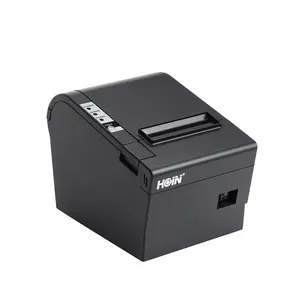

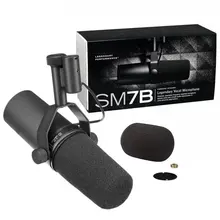
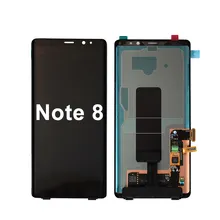


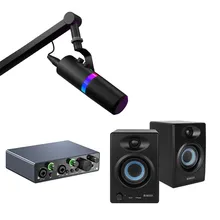

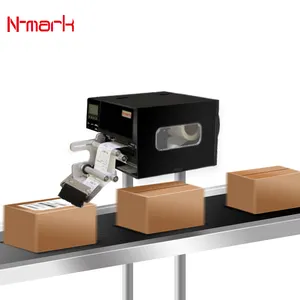

























 浙公网安备 33010002000092号
浙公网安备 33010002000092号 浙B2-20120091-4
浙B2-20120091-4